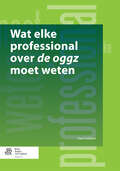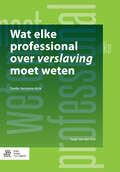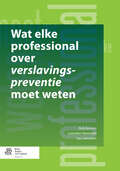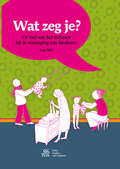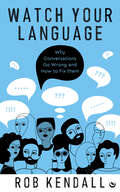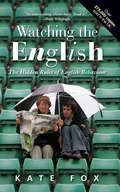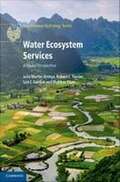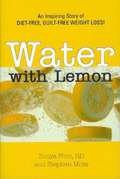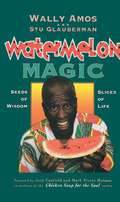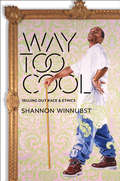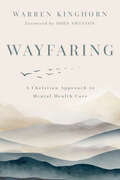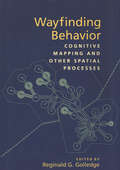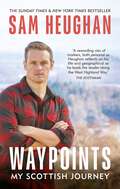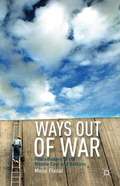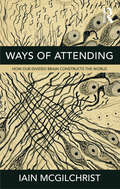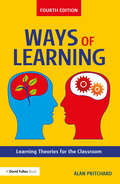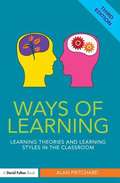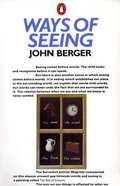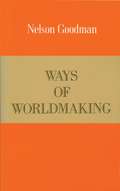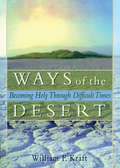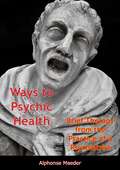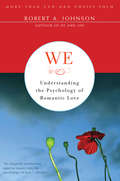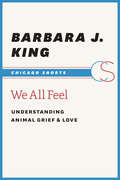- Table View
- List View
Wat elke professional over de oggz moet weten
by Gert SchoutIn de Openbare Geestelijke Gezondheidszorg (OGGz) worden mensen geholpen die hulp nodig hebben maar er niet om vragen, of er niet om vragen bij het juiste adres. Vaak gaat het om combinaties van problemen en beperkingen. De belangrijkste reden dat de OGGz bestaat is echter niet de problemen of beperkingen van de doelgroep, maar het onvermogen van instanties om integrale, assertieve en grensoverschrijdende hulp te bieden. Drempels, productieplafonds, wachtlijsten en indicaties bemoeilijken de toegang tot de hulpverlening. Deze uitgave wil antwoord geven op de vraag 'wat iedere professional moet weten over de OGGz'. Het bestaansrecht van de OGGz centraal te stellen: waarom is er een OGGz? Hoe komt dat? En hoe is de OGGz buiten Nederland georganiseerd? Antwoorden op die vragen zijn echter ook van belang voor het beroepsvoorbereidend onderwijs. Dit boekje is daarom ook bedoeld voor de opleidingen die voorbereiden op eerdergenoemde werkterreinen.
Wat elke professional over verslaving moet weten: Canon Verslaving
by Jaap van der StelDit boek is onmisbaar voor alle personen die zich, professioneel of in lerende of opleidende rol, in of rond de verslavingszorg bewegen. Het is een unieke publicatie op gebied van kennisoverdracht, bekwaamheidsontwikkeling, onderwijs en opleiding. Dit gedegen overzicht van de belangrijkste onderdelen van verslaving en verslavingszorg kan beschouwd worden als canon en tegelijkertijd als 'body of knowledge' van dit vakgebied. De focus is in dit boek gericht op gebruik, misbruik en afhankelijkheid van psychoactieve stoffen, met name op alcohol, heroïne, cocaïne en cannabis. Hoewel de verslavingszorg in Nederland al meer dan een eeuw bestaat, is er niet eerder een handleiding verschenen dat specifiek voor het hoger onderwijs (m. n. HBO) is geschreven. Aan dit boek liggen geselecteerde teksten - tientallen artikelen, handboeken, richtlijnen en literatuurstudies - ten grondslag die qua actualiteit, leesbaarheid en empirische onderbouwing voldoen aan de hoge normen die de Raad voor Bekwaamheidsontwikkeling stelt. Deze Raad heeft de opdracht om 'moderne verslavingskunde' te bevorderen in opleidingen, trainingen en na- en bijscholing van professionals in de gezondheidszorg. De handleiding kent 4 hoofdstukken: Middelen, gebruik en gebruikerMisbruik en verslavingMaatschappelijke gevolgen en overheidsbeleidBehandeling en begeleiding bij verslavingOm ruimte te besparen wordt in de tekst verwezen naar websites wanneer daar uitmuntende en actuele overzichten en praktische informatie over hulpverlening staan.
Wat elke professional over verslavingspreventie moet weten
by Lex Lemmers Rob Bovens Leontien HommelsDit boek gaat over verlavingspreventie. Verslaving is een maatschappelijk verschijnsel dat vaak meer dan andere ziekteproblemen leidt tot gevolgen die verder gaan dan hogere kosten voor de gezondheidszorg. Verslavingen kunnen leiden tot ontwrichting van sociale omgevingen, tot verwaarlozing in de opvoeding, tot overlast op straat, tot economische schade, of tot onveilige situaties in het verkeer of in het uitgaansleven. Het boek wordt op eenzelfde manier opgezeg als Wat elke professional moet weten over verslaving. Het zjin korte hoofdstukken bestaande uit verschillende didactische boxen waarin termen worden uitgelegd, voorbeelden worden gegeven en verwijzingen naar andere literatuur staan opgenomen.
Wat zeg je?
by Inga MolBaby's en kleine kinderen worden heel veel aangeraakt. Ze hebben nog geen woorden. Voor het kleine kind is de aanraking letterlijk het meest veelzeggende in zijn bestaan. Het is zijn eerste taal.Hoe je die taal kunt leren verstaan én spreken, is het onderwerp van dit boek. 'Wat zeg je?' is voor iedereen die kinderen verzorgt en voor iedereen die met kinderen werkt.
Watch Your Language: Why Conversations Go Wrong and How to Fix Them
by Rob KendallThe most accessible and practical book on the market about improving your personal and professional conversations, by internationally respected conversation expert Rob Kendall.Watch Your Language makes good communication easy, offering a huge range of case studies, easy-to-absorb concepts such as the Bad Place and the Tangle, and a unique "talking heads" page design that dissects examples of problematic conversations. It explains exactly why our daily conversations go wrong, how to respond when they do and provides tips on how to stop them from deteriorating in the first place. Communications expert Rob Kendall draws on over 30 years of experience to reveal:How to avoid conversations escalating into destructive argumentsHow to prepare for and conduct challenging conversationsHow to avoid defensiveness and emotional lockdownHow to read the warning signals that a conversation is going off-trackShort digestible chapters look at a wide variety of conversational scenarios, showing how to have rewarding and effective interactions with everyone in your life – from your partner, parents and children to your colleagues, boss and neighbours.
Watching the English: The Hidden Rules of English Behaviour
by Kate FoxA runaway bestseller in the UK, Watching the English is now available in the U.S. for the first time! Witty and wise, Kate Fox reveals the quirks, habits, and foibles of the English people. Putting the national character under her microscope, Fox explores this strange and fascinating culture, governed by a complex set of unspoken rules and a bizarre code of conduct. Through anthropological analysis and a series of unorthodox experiments (often using herself as a reluctant guinea-pig), Fox discovers what these unwritten codes tell us about Englishness: the rules of weather-speak, the ironic-gnome rule, the reflex apology rule, the paranoid-pantomime rule, class anxiety tests, and the money-talk taboo, among others. Watching the English is a biting, affectionate, insightful, and often hilarious look at English society.
Water Ecosystem Services: A Global Perspective (International Hydrology Series)
by Iain J. Gordon Julia Martin-Ortega Robert C. Ferrier Shahbaz KhanThis comprehensive volume describes how ecosystem services-based approaches can assist in addressing major global and regional water challenges, such as climate change, biodiversity loss, and water security in the developing world, by integrating scientific knowledge from different disciplines, such as hydrological modelling, environmental economics, psychology and international law. Empirical assessments at the national, catchment and regional levels are used to critically appraise this systemic approach, and the merits and potential limitations are presented. The practicalities of this approach with regard to water resources management, nature conservation, and sustainable business practices are discussed, and the role of society in underpinning the concept of ecosystem services is explored. Presenting new insights and perspectives on how to shape future strategies, this contributory volume is a valuable reference for researchers, academics, students and policy makers, in environmental studies, hydrology, water resource management, ecology, environmental law, policy and economics, and conservation biology. Provides a practical definition of ecosystem services-based approaches for both researchers and practitioners. Provides a definitive reference for future research and the implementation of ecosystem services-based approaches within the water sector and beyond. Discusses new and unexplored dimensions to the ecosystem services field, such as human rights, thereby enhancing the concept for both research and practice. Brings together knowledge across a range of disciplines and is suitable for a broad audience.
Water With Lemon
by Stephen Moss Zonya FocoPower of One Good Habit Water with Lemon is the first health novel in the Power of One Good Habit series. Introducing A New Genre: The Health Novel 60 extra pounds. An unhappy marriage. Food for comfort. Karen's life is falling apart. Then she meets an unlikely neighbor who reveals how a series of simple choices have the power to shape the life we have - into the life we want. Karen's story of weight loss and personal transformation will touch your heart and open your eyes! It will reveal how eight powerful, core habits, when mastered one at a time, create an invisible force that will literally - change your life. What do you get when you cross a nutritionist with a novelist? A health novel! Where nutrition, health and weight-loss information are woven into the story. Each challenge the characters face not only teaches you what to do - it inspires you to actually do it. Zonya Foco, America's Nutrition Leader, and Stephen Moss, America's Health Novelist, have joined forces to create this exciting new genre. Stephen's compelling story will keep you turning the pages while Zonya's surprisingly simple approach to mastering weight control is revealed. You'll discover that this is not another fad diet book. In fact, it's not a diet book at all. There is no diet mentality. Nothing to calculate. And never a reason to feel guilty!
Watermelon Magic: Seeds of Wisdom, Slices of Life
by Jack Canfield Wally Amos Stu GlaubermanWatermelon Magic is talk from the soul using watermelons as a metaphor for life. Watermelons symbolize the slurpy happiness of life for Wally Amos (formerly known as "Famous Amos"). From his life experiences, Wally sees many parallels between humans and watermelons. Just as the vine connects watermelons and the umbilical cord connects mother and child, we are all connected by spirit. Wally shares his personal path to wisdom and tells how he never lost his humor, joy, and positive outlook on life in the process. He shows us how to overcome adversity and make healthy choices-how to reframe and rethink challenging situations in positive, optimistic, and uplifting terms. A master storyteller, Wally believes we all have a choice in our own happiness-no matter who we are, no matter what we've been through-and his stories will touch you at the very depth of your soul. If these ideas and beliefs speak to you, grab them like slices of watermelon, devour them, and have fun! Look out for the seeds, and live life to the fullest!
Waves of Hope: Personal Stories of ECT
by George KirovElectroconvulsive therapy (ECT) can be a lifesaving treatment for people with severe mental illness that have not responded to other treatments. Yet, it remains one of the most controversial treatments in psychiatry. This book is a collection of stories written by people who have received ECT, or by their friends and family. They provide open and detailed accounts of their experiences of severe mental illness and their journeys through ECT, including any side effects of the treatment. The outcomes range from quick recoveries to relapses and repeated courses of therapy. These stories will highlight the potential life changing benefits this treatment can have and dispel some of the myths and misinformation that surround this treatment. This book will be a useful resource for anyone looking for further information about ECT and for those who want to learn about the experiences of people who have severe depression, including psychosis.
Way Out: Was hilft und was heilt
by Andrea Brummack Dagmar KlinkDieser Ratgeber zeigt, was Eltern, Angehörige, aber auch Sozialpädagog*innen, Erzieher*innen und Lehrer*innen tun können, damit Kinder sexuelle Übergriffe gut verarbeiten und die traumatischen Folgen gelindert werden. Andrea Brummack und Dagmar Klink stellen Geschichten und Fallberichte von Kindern vor, die ihren Weg aus gefährlichen Ereignissen und Konflikten gefunden haben, sowie praktische Tipps und Prinzipien, um sexuelle Traumata zu lösen. Der Fokus liegt dabei auf zwei wichtigen Elementen: dem Umgang mit der durch den Schrecken verlorenen Sprache der Kinder sowie der Rolle des Tastsinns bei der Wiederherstellung positiver Assoziationen mit Berührung.
Way Too Cool: Selling Out Race and Ethics
by Shannon WinnubstLife, liberty, and the pursuit of cool have informed the American ethos since at least the 1970s. Whether we strive for it in politics or fashion, cool is big business for those who can sell it across a range of markets and media. Yet the concept wasn't always a popular commodity. Cool began as a potent aesthetic of post-World War II black culture, embodying a very specific, highly charged method of resistance to white supremacy and the globalized exploitation of capital.Way Too Cool follows the hollowing-out of "coolness" in modern American culture and its reflection of a larger evasion of race, racism, and ethics now common in neoliberal society. It revisits such watershed events as the 1960s Civil Rights Movement, second-wave feminism, the emergence of identity politics, 1980s multiculturalism, 1990s rhetorics of diversity and colorblindness, 9/11, and Hurricane Katrina, as well as the contemporaneous developments of rising mass incarceration and legalized same-sex marriage. It pairs the perversion of cool with the slow erasure of racial and ethical issues from our social consciousness, which effectively quashes our desire to act ethically and resist abuses of power. The cooler we become, the more indifferent we grow to the question of values, particularly inquiry that spurs protest and conflict. This book sounds an alarm for those who care about preserving our ties to an American tradition of resistance.
Wayfaring: A Christian Approach to Mental Health Care
by Warren KinghornA theologically and scientifically engaged exploration of modern mental health care The current model of mental health care doesn&’t see people: it sees sets of symptoms that need fixing. While modern psychiatry has improved many patients&’ quality of life, it falls short in addressing their relational and spiritual needs. As a theologian and practicing psychiatrist, Warren Kinghorn shares a Christian vision of accompanying those facing mental health challenges. Kinghorn reviews the successes and limitations of modern mental health care before offering an alternative paradigm of healing. Based in the theology of Thomas Aquinas, this model of personhood affirms four truths: We are known and loved by God. We are creatures made of earth who are formed in community. We are wayfarers on a journey. We are called not to control, but to wonder, love, praise, and rest. Drawing on theological wisdom and scientific evidence, Kinghorn reframes our understanding of mental health care from fixing machines to attending fellow wayfarers on the way to the Lord&’s feast. With gentle guidance and practical suggestions, Wayfaring is an essential resource for pastors and practitioners as well as for Christians who seek mental health care.
Wayfinding Behavior: Cognitive Mapping and Other Spatial Processes
by Reginald G. GolledgeThe metaphor of a "cognitive map"has attracted wide interest since it was first proposed in the late 1940s. Researchers from fields as diverse as psychology, geography, and urban planning have explored how humans process and use spatial information, often with the view of explaining why people make wayfinding errors or what makes one person a better navigator than another. Cognitive psychologists have broken navigation down into its component steps and shown it to be an interplay of neurocognitive functions, such as "spatial updating"and "reference frames"or "perception-action couplings."But there has also been an intense debate among biologists over whether animals have cognitive maps or have other forms of internal spatial representations that allow them to behave as if they did. Yet until now, little has been done to relate research on human and non-human subjects in this area.In Wayfinding Behavior: Cognitive Mapping and Other Spatial Processes Reginald Golledge brings together a distinguished group of scholars to offer a unique and comprehensive survey of current research in these diverse fields. Among the common themes they discover is the psychologists' "black box"approach, in which the internal mechanisms of spatial perception and route planning are modeled or constructed, like metaphors, based on the behavioral evidence. Cognitive neuroscientists, on the other hand, have attempted to discover the neurocognitive basis for spatial behavior. (They have shown, for example, that damage in the hippocampus system invariably impairs the ability of animals and humans to learn about, remember, and navigate through environments, and studies in humans show that neurons in this system code for location, direction, and distance, thereby providing the elements needed for a mapping system.) Artificial intelligence and robotics theorists attempt to construct intelligent mapping systems using computer technology. In these areas, there is growing evidence that, as in human wayfinding processes, useful representations cannot be achieved without sacrificing completeness and precision.Wayfinding Behavior: Cognitive Mapping and Other Spatial Processes offers not only state-of-the-art knowledge about "wayfinding, "but also represents a point of departure for future interdisciplinary studies. "The more we know," concludes volume editor Reginald Golledge, "about how humans or other species can navigate, wayfind, sense, record and use spatial information, the more effective will be the building of future guidance systems, and the more natural it will be for human beings to understand and control those systems."
Waypoints: My Scottish Journey
by Sam HeughanAN INSTANT SUNDAY TIMES AND NEW YORK TIMES BESTSELLER'As the title suggests, Waypoints is a rewarding mix of markers, both personal as he reflects on his life and geographical as he leads the reader along the West Highland Way' - The Scotsman'A deeply personal and warmly entertaining memoir that fans of Sam - and Scotland - will have a joyful time devouring' - Heat'From both his walk and his career, the common lesson is the power of persistence.' - The Times'A pleasure for fans of the author, whisky, and Scotland.' - Kirkus'Waypoints is a memoir with a difference! I wanted to tell the stories and share the experiences that have shaped me, but to do that I needed to challenge myself and spend some time in my own company, away from the distractions of everyday life. And for me there's no better place to reflect than in the wild Scottish Highlands.'In this journey of self-discovery, Sam Heughan sets out along the West Highland Way to explore his heritage and reflect on the personal waypoints that define him. The result is a love letter to the wild Scottish landscape that means so much to Sam, and a charming, funny, wise and searching insight to the world through his eyes. The walk itself is the backdrop for this narrative, which tells the story of Sam's life while exploring his outlook, values and interests. Sam is a figure of fascinating contrasts, a Hollywood star with deep roots in rural Scotland, he's both outgoing and content in his own company. He has strong connections with his fans while recognising the fragility and value of anonymity, and in My Peak Challenge he has created a network that brings people together as they chase individual goals. In his new book, while charting a path through a stunning wilderness, Sam maps out the moments that shaped his views on dreams and ambition, family, friendships, love and life.Waypoints is a deeply personal journey that reveals as much to Sam about himself as it does to his readers.
Ways Out of War
by Mona FixdalAn exploration of the individual work of ten diplomats who were charged with negotiating conclusions to intractable conflicts in the Middle East and Balkans, this book is the first study to combine the outlooks of practitioners and academics on new forms of war, especially asymmetrical warfare between state and non-state actors.
Ways of Attending: How our Divided Brain Constructs the World
by Iain McGilchristAttention is not just receptive, but actively creative of the world we inhabit. How we attend makes all the difference to the world we experience. And nowadays in the West we generally attend in a rather unusual way: governed by the narrowly focussed, target-driven left hemisphere of the brain. Forget everything you thought you knew about the difference between the hemispheres, because it will be largely wrong. It is not what each hemisphere does – they are both involved in everything – but how it does it, that matters. And the prime difference between the brain hemispheres is the manner in which they attend. For reasons of survival we need one hemisphere (in humans and many animals, the left) to pay narrow attention to detail, to grab hold of things we need, while the other, the right, keeps an eye out for everything else. The result is that one hemisphere is good at utilising the world, the other better at understanding it. Absent, present, detached, engaged, alienated, empathic, broad or narrow, sustained or piecemeal, attention has the power to alter whatever it meets. The play of attention can both create and destroy, but it never leaves its object unchanged. How you attend to something – or don’t attend to it – matters a very great deal. This book helps you to see what it is you may have been trained by our very unusual culture not to see.
Ways of Learning: Learning Theories for the Classroom
by Alan PritchardWhile most teachers are skilled in providing opportunities for the progression of children’s learning, it is sometimes without fully understanding the theory behind it. With greater insight into what is currently known about the processes of learning and about individual learners, teachers are better equipped to provide experiences and situations that are more likely to lead to effective acquisition of knowledge, concepts and skills. Ways of Learning has been widely used and now, fully updated, it seeks to provide further insight into the ways in which learning takes place, which teachers can make use of in their planning and teaching, including: ■ an overview of learning ■ behaviourism and the beginning of theory ■ cognitive and constructivist learning ■ multiple intelligences and learning styles ■ difficulties with learning ■ the influence of neuropsychology ■ other theories, philosophies and names ■ relating theory to practice. The fourth edition of this book includes developments in areas covered in the preceding editions, as well as expanding on certain topics to bring about a wider perspective; most notably, a new consideration of learning styles and a new chapter detailing important thinkers and writers from the history of education and their continuing influence along with other theories, ideas and thoughts not included in the rest of the book. The book also reflects changes in government policy and is closely related to new developments in practice. Written for trainee teachers, serving teachers and others interested in learning for various reasons, Ways of Learning serves as a valuable introduction for students setting out on higher degree work who are in need of an introduction to the topic.
Ways of Learning: Learning theories and learning styles in the classroom
by Alan PritchardWhilst most teachers are skilled in providing opportunities for the progression of children's learning, it is often without fully understanding the theory behind it. With greater insight into what is currently known about the processes of learning and about individual learning preferences, teachers are better equipped to provide effective experiences and situations which are more likely to lead to lasting attainment. Now fully updated, Ways of Learning seeks to provide an understanding of the ways in which learning takes place, which teachers can make use of in their planning and teaching, including: An overview of learning Behaviourism and the beginning of theory Cognitive and constructivist learning Multiple intelligences Learning styles Difficulties with learning The influence of neuro-psychology Relating theory to practice The third edition of this book includes developments in areas covered in the first and second editions, as well as expanding on certain topics to bring about a wider perspective; most noticeably a newly updated and fully expanded chapter on the influence of neuro-educational research. The book also reflects changes in government policy and is closely related to new developments in practice. Written for trainee teachers, serving teachers, and others interested in learning for various reasons, Ways of Learning serves as a valuable introduction for students setting out on higher degree work who are in need of an introduction to the topic.
Ways of Seeing: Based on the BBC Television Series with John Berger
by John BergerContains seven essays. Three of them use only pictures. Examines the relationship between what we see and what we know.
Ways of the Desert: Becoming Holy Through Difficult Times
by Harold G Koenig William F KraftDiscover how negative experiences such as loneliness, depression, and anxiety can be opportunities for personal growth!Ways of the Desert: Becoming Holy Through Difficult Times analyzes the similarities and differences between spiritual and psychological experiences. This book shows religious professionals and others interested in spiritual development how suffering can foster growth. You will explore the so-called “negative” desert experiences--depression, anxiety, loneliness, guilt, and anger--and learn how they can be opportunities for spiritual growth. This book explains why opposites are necessary and related parts of healthy and holy development, and that, especially in a spiritual life, the positive and negative are related. Ways of the Desert will take you on a journey through the “deserts” and “promised lands” of adolescence, adulthood, and the elderly years. In most Western cultures the acceptance of opposites as a necessary and related part of healthy and holy growth is not common, and its rejection can engender spiritual stagnation. Ways of the Desert offers suggestions on creating lifelong spirituality including: understanding the need for both “clock” time for functional order and “sacred” time to redeem us from the boredom of our daily challenges understanding the languages of the desert, or the messages that are primarily nonverbal, ambiguous, or ambivalent using effective communication when expressing feelings such as shame, frustration, anger, or anguish examining the similarities and differences between psychological and spiritual activity comparing psychological twelve-step help programs to spiritual growth journeysThis extraordinary book works to help you make sense of your life when you feel lost, trapped, depressed, or lonely. You will attain spiritual guidance to assist you on your journey through life and help you understand that the deserts of negative experiences that we sometimes wander into can be illuminating opportunities for spiritual progress. Ways of the Desert will guide you through difficult and challenging times and help you achieve spiritual satisfaction and happiness in life.
Ways to Psychic Health: Brief Therapy from the Practice of a Psychiatrist
by Alphonse MaederA distinguished Swiss psychotherapist interprets, through the presentation of case histories, the effective work done with the mentally ill and presents a basis for spiritual and mental health.In this book, which was first published in its English translation in 1953, Dr. Alphonse Maeder has written a clear explanation of what he feels happens in the human personality that causes the whole pattern of life to be distorted—to become unharmonized and self-centred.“A PSYCHOTHERAPIST reports on the insights gleaned from his practice. This book is based upon medical experience. I have tried to present a true picture of what actually happens during the consultation. It is not so much a question of presenting the typical case material but of seeking to reproduce faithfully what occurs during the fascinating—and often anxious hours of dialogue between physician and patient.”—Dr. Alphonse Maeder
We
by Robert A. JohnsonProvides an illuminating explanation of the origins and meaning of romantic love and shows how a proper understanding of its psychological dynamics can revitalize our most important relationships.
We All Feel: Understanding Animal Grief & Love (Chicago Shorts)
by Barbara J. KingFrom the time of our earliest childhood encounters with animals, we casually ascribe familiar emotions to them, though scientists have long cautioned against such anthropomorphizing. Recently, however, things have begun to shift in the other direction, and anthropologist Barbara J. King is at the forefront of that movement, arguing strenuously that we can—and should—attend to animal emotions. In the stories she tells here, King relays how some farm animals—horses, goats, chickens, and ducks—bond with others and engage in mourning when their friends die. Here, too, dolphins and whales exhibit striking signs of suffering over the loss of babies and companions: a mother dolphin will not give up her dead baby, and whales risk stranding themselves in small groups rather than abandon kin. As part of a larger web of life, death, love, and loss, King calls our attention to emotions—both our own and those of our companion species.
